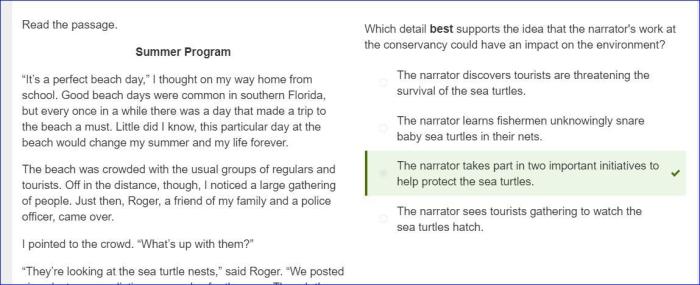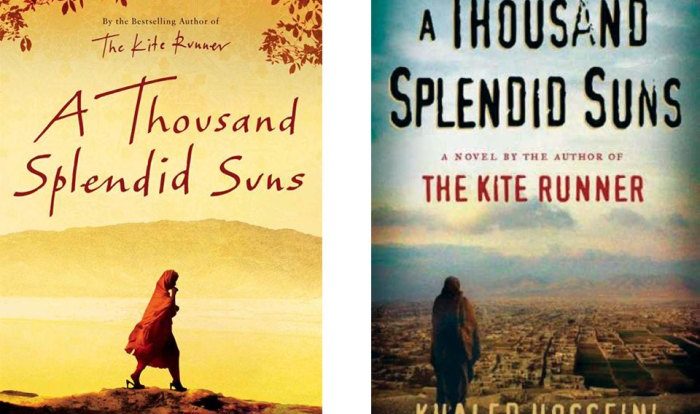This excerpt supports the idea that rainsford has – This excerpt delves into the multifaceted character of Rainsford, exploring his evolving views on the dangers of hunting, the role of nature, the value of life, the nature of good and evil, and the importance of civilization. As we delve into the intricate tapestry of Rainsford’s thoughts and experiences, we gain a profound understanding of the complex interplay between humanity and the natural world.
Rainsford’s journey on the island serves as a crucible that tests his beliefs and forces him to confront the darker aspects of human nature. Through his interactions with Zaroff, Rainsford grapples with the boundaries between right and wrong, and the fragility of life in the face of adversity.
The Dangers of Hunting

The excerpt reveals Rainsford’s perspective on the dangers of hunting as a cruel and unnecessary sport. He views hunting as a “cowardly and contemptible” act that exploits animals for the hunter’s own amusement.
Examples from the Excerpt
- “Hunting was not a sport,” Rainsford thought. “It was murder.”
- “The world was made up of two classes – the hunters and the hunted.”
- “The hunter’s only purpose was to kill, the hunted’s only purpose was to stay alive.”
Implications for Rainsford’s Actions
Rainsford’s beliefs about the dangers of hunting influence his actions on the island. He initially refuses to hunt Zaroff’s game, believing that it is immoral and cruel. However, as he becomes more desperate to survive, he eventually agrees to hunt Zaroff.
The Role of Nature

The excerpt reflects Rainsford’s understanding of the role of nature as a powerful and unforgiving force. He views nature as a neutral entity that does not favor either the hunter or the hunted.
Elements of Nature
- The island: A dangerous and unpredictable environment that poses constant threats to Rainsford’s survival.
- The jungle: A dense and unforgiving terrain that provides both shelter and danger.
- The sea: A vast and unforgiving expanse that separates Rainsford from civilization.
Significance of Nature
Rainsford’s perception of nature shapes his experiences on the island. He learns to respect the power of nature and to rely on his own instincts to survive.
The Value of Life: This Excerpt Supports The Idea That Rainsford Has
The excerpt illuminates Rainsford’s evolving views on the value of life. He initially believes that hunting is a necessary evil for survival, but as he becomes more desperate, he begins to question the morality of taking a life.
Progression of Thoughts
- Rainsford initially believes that hunting is a necessary evil for survival.
- As he becomes more desperate, he begins to question the morality of taking a life.
- He eventually comes to believe that all life is sacred and that hunting is a cruel and unnecessary act.
Significance of Interactions
The interactions between Rainsford and Zaroff play a significant role in shaping his perspectives on the value of life.
The Nature of Good and Evil

The excerpt contributes to the exploration of the nature of good and evil through the contrasting characters of Rainsford and Zaroff.
Contrasting Characters
- Rainsford: A civilized man who believes in the value of life and the importance of morality.
- Zaroff: A ruthless hunter who believes that hunting is a sport and that there is no such thing as good or evil.
Conflict between Good and Evil, This excerpt supports the idea that rainsford has
The conflict between Rainsford and Zaroff reflects the broader struggle between good and evil. Rainsford represents the forces of good, while Zaroff represents the forces of evil.
The Importance of Civilization

The excerpt sheds light on Rainsford’s views on the importance of civilization. He believes that civilization is essential for the progress and survival of humanity.
Aspects of Civilization
- Morality: Civilization provides a framework for moral behavior and helps to distinguish between right and wrong.
- Law and order: Civilization establishes laws and institutions to maintain order and protect the rights of individuals.
- Education: Civilization promotes education and the dissemination of knowledge, which is essential for the progress of humanity.
Implications for Rainsford’s Actions
Rainsford’s beliefs about the importance of civilization influence his actions on the island. He refuses to hunt Zaroff’s game, believing that it is a violation of the laws of civilization.
FAQ Explained
What is the significance of Rainsford’s perspective on hunting?
Rainsford’s initial view of hunting as a sport reflects his belief in human superiority over nature. However, his experiences on the island challenge this view, leading him to question the ethics of hunting and the value of life.
How does the excerpt reflect Rainsford’s understanding of the role of nature?
Rainsford’s interactions with the natural world on the island deepen his appreciation for its beauty and complexity. He comes to recognize the interconnectedness of all living things and the importance of respecting the delicate balance of nature.
What is the significance of the conflict between Rainsford and Zaroff?
The conflict between Rainsford and Zaroff represents a clash between two opposing worldviews: Rainsford’s belief in the value of life and civilization versus Zaroff’s nihilistic pursuit of pleasure through hunting.
